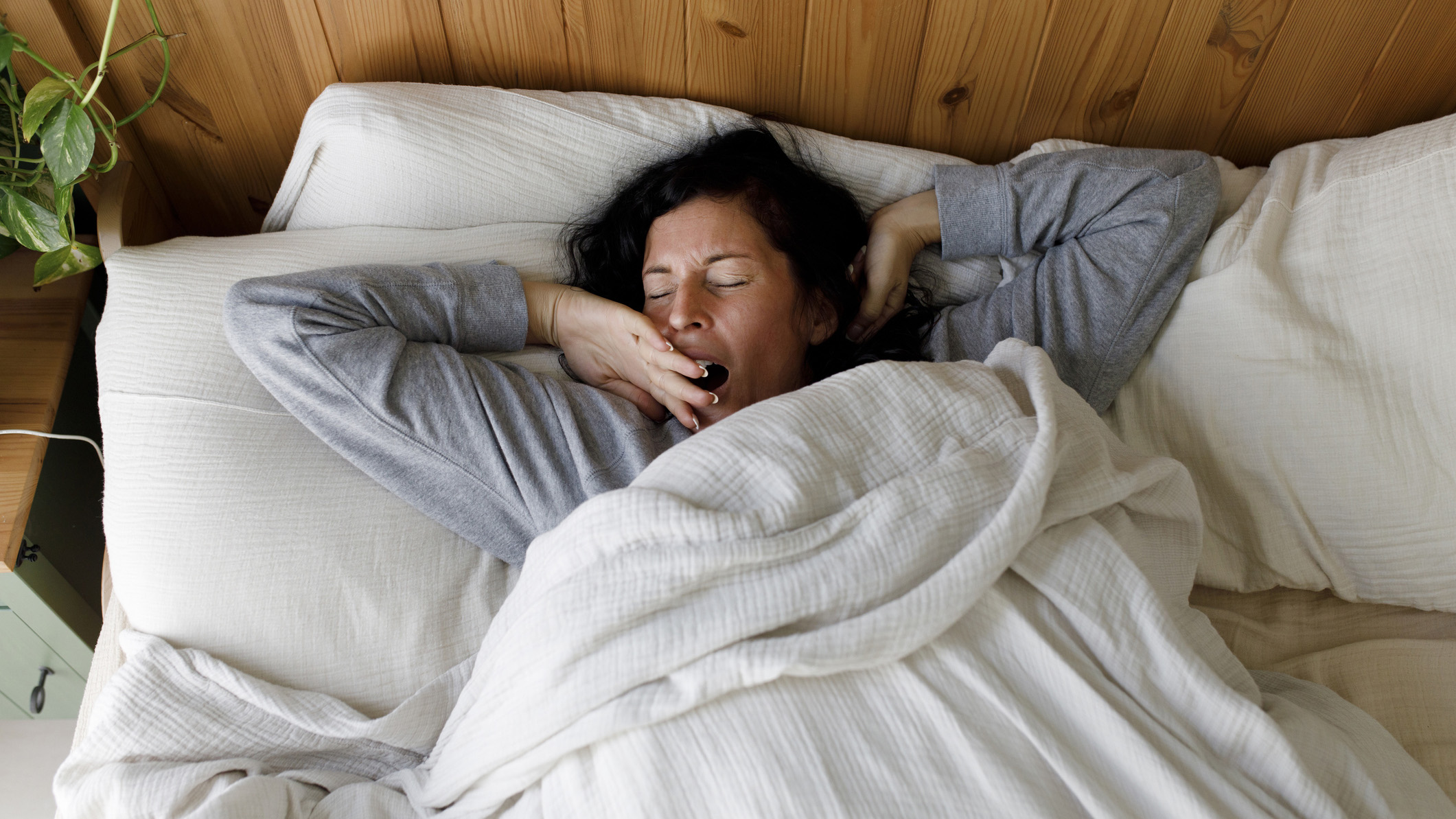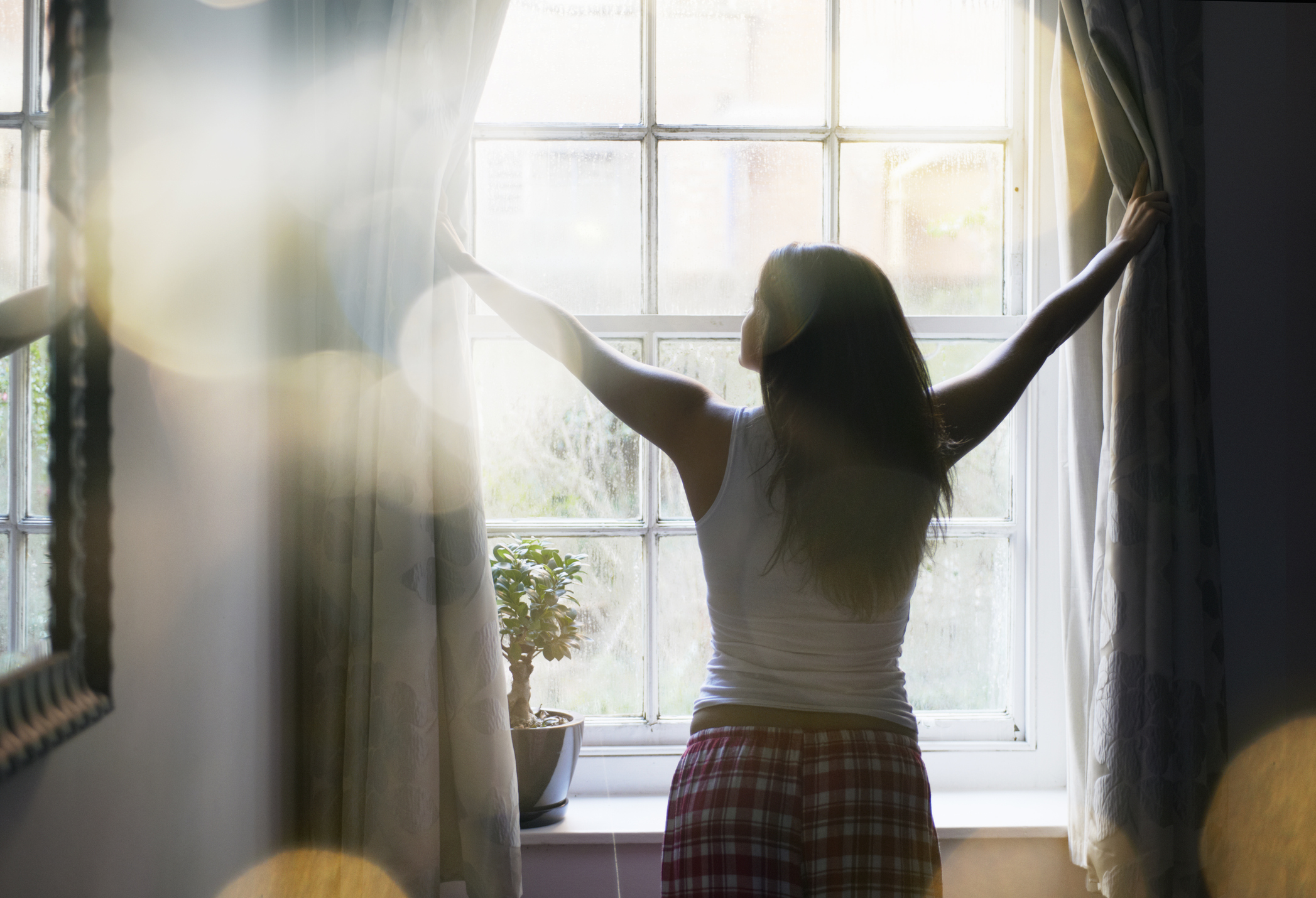Dakota Johnson sleeps 14 hours a night — what is oversleeping and is it bad for you?
What you need to know about oversleeping, including why it makes you feel tired and how to stop

We’re all familiar with the negative impact not getting enough sleep has on us, but is it possible to get too much sleep? Actress Dakota Johnson recently revealed that she gets around 14 hours of sleep per night. So you might be wondering, is oversleeping bad for you and can it make you feel tired? Spoiler alert: the answer to both is yes.
Getting adequate sleep is essential for our bodies to function optimally, but too much sleep can lead you to feel tired and groggy, rather than feeling more refreshed and alert. This is because oversleeping can have a similar effect on your body to being hung over or jet lagged. So yes, it is possible to get too much of a good thing when it comes to sleep.
Here, we’ll explore oversleeping, why you might feel you need more sleep than normal, plus how to ensure you’re getting enough nighttime sleep for your age and health.
- Rise and shine with the best iPhone alarms according to science
What is oversleeping and is it bad for you?
“Sleep is my No 1 priority in life,” Johnson said in an interview with the Wall Street Journal magazine. “I’m not functional if I get less than 10. I can easily go 14 hours.” 14 hours of sleep is nearly double the amount of rest that most adults need to function optimally, so is it a case of the more sleep, the better? In a word, no.
Much like too little sleep can lead to poor cardiovascular health, studies indicate that too much sleep — categorised as 10 hours or more per night — can also increase your risk of chronic illness.
According to the Centres for Disease Control (CDC), oversleeping can increase your risk of developing coronary heart disease, stroke and diabetes. So when it comes to sleep, getting the right amount of sleep for your age is crucial.

Depending on when Johnson is squeezing 14 hours of sleep into her day, oversleeping can also disrupt your circadian rhythm, the body’s internal body clock. A regular sleep schedule helps your body prepare for both sleep and wake times, releasing melatonin (the sleep-inducing hormone) at night and cortisol and serotonin (our get-up-and-go hormones) in the morning. Disrupting this rhythm can make sleep harder to come by.
Sign up to get the BEST of Tom's Guide direct to your inbox.
Get instant access to breaking news, the hottest reviews, great deals and helpful tips.
Can oversleeping make you feel tired?
Not only is oversleeping bad for you, it’s also counterintuitive. If you’ve ever hit the snooze button, only to wake up feeling groggy and even more tired, you’re not alone. Too much sleep can have a similar effect on energy levels to a big night out or long distance travel.
Scientists even have a name for this feeling of lethargy: sleep drunkenness. Oversleeping can lead to sleep drunkenness, which is a form of prolonged sleep inertia (sleep inertia is when you feel sluggish and confused after waking from a deep sleep).
What’s more, exposure to natural sunlight first thing in the morning actually helps you fall asleep later that night, as the serotonin sunlight gives us is later metabolised into melatonin. Sleeping through all of this means skipping vital steps that improve your overall sleep hygiene.
Why you might need more sleep than normal
There’s little better in life than being snuggled up in bed – especially if you’re lucky enough to be resting on one of the best mattresses. But if you consistently feel that you require more than nine hours' sleep per night, it's worth investigating why.

Illness, travel and intense physical activity can deplete our energy reserves, which means that we may sleep for longer during those periods. However, if you feel fatigued throughout the day despite sleeping for longer than 9 hours, it could be a sign of an underlying physical or mental health issue and should be investigated by your doctor or health practitioner.
How to stop oversleeping and get the right amount
At each stage and age in our lives, the sleep we require to function optimally changes. Adults aged 18 and over typically need between seven and nine hours of quality sleep for their body to properly replenish itself, with some studies noting that women require a further 20 minutes of sleep due to their “complex brains.”
Instead of steadfastly holding on to a specific unit of time, focus instead on tuning in to getting the sleep that your body needs. If you have had enough sleep, you should wake up feeling refreshed and well-rested. But even with a solid eight hours of sleep under your belt, it’s possible to still require more.
Signs that you’re not getting enough quality sleep includes feeling lethargic and groggy upon waking, with this feeling of fatigue following you throughout the day. How much sleep we need varies from person to person, but it’s worth seeking the advice of your GP if you find yourself, like Johnson, sleeping for ten hours or more.

Nicola is the Sleep Editor at Tom’s Guide, where she helps steer the mattress and sleep content published on Tom’s Guide, including our Best Mattress for Back Pain buying guide. With a career in journalism spanning the best part of two decades, Nicola brings experience to the team and the knowledge of what makes a great article, whether that’s a how-to mattress cleaning feature, a deep dive into melatonin gummies, or an in-depth mattress review. As a sleep editor, few better understand how important a decent mattress is to the overall quality of our sleep, and precisely how our sleep impacts our physical and mental health. As well as tackling the vast topic of sleep, Nicola joins the raft of expert mattress specialists at Tom’s Guide, who test and compare a wide range of mattresses in order to guide readers towards the very best options on the market.
